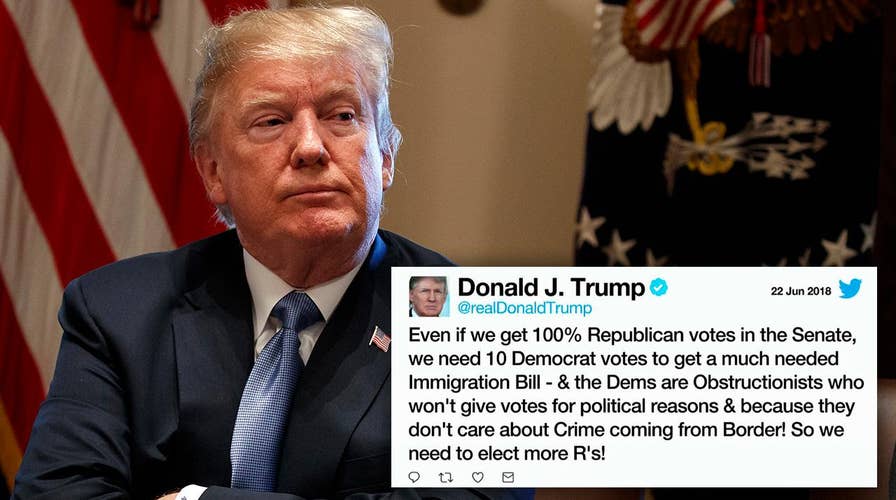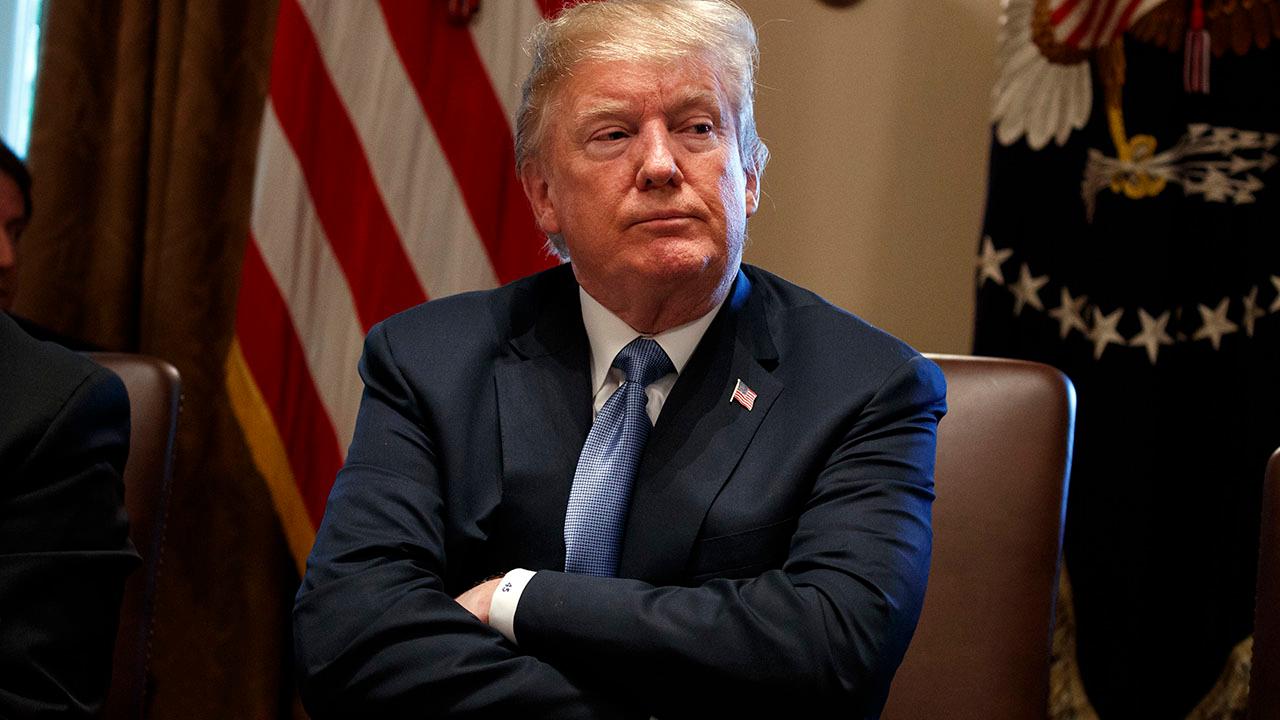Trump suggests GOP is wasting time with immigration bill
President says a 'red wave' in November is needed to pass legislation over 'obstructing' Democrats; Doug McKelway reports from the 'White House.'
President Trump threw in the towel Friday with a tweet telling Republicans in Congress to "stop wasting their time" on immigration legislation until after the November elections. He said that next year they should try again to overcome their internal disputes on the issue.
The reason for the president’s reversal was those elections. Polls show the GOP electorate is split on immigration. Even among Republicans over the age of 50, over 40 percent oppose President Trump’s actions on family separation.
Control of the House of Representatives will be determined by election results in suburban congressional districts with large numbers of highly educated voters that are now represented by Republicans. With some exceptions, such as in Minnesota, the key races that will determine which party wins a House majority will not be fought in the blue-collar, populist districts that swung from Barack Obama to Donald Trump in 2016.
The generic vote for Congress is close. A tough policy on immigration may bring out President Trump’s base to vote, but the public relations disaster of family separations threatened to drive suburban voters – especially women – to the Democrats.
“Somehow I don’t think that putting kids in cages is likely to go over very well with suburban moms,” Whit Ayres, a Republican pollster, told The Atlantic magazine.
Trump aides hope that by now combining tough rhetoric on issues such as sanctuary cities with ducking a bruising political battle in Congress, they will thread the needle and allow Republicans to keep the House.
Two new polls indicate that immigration may not be quite the potent issue it was for Trump in 2016. Ironically, the surging economy has lowered the number of people trying to cross the border or overstay their visas.
A new Gallup poll finds that only 29 percent of Americans think legal immigration should be reduced. A plurality of 39 percent think it should stay at current levels, while 28 percent want immigration increased. A large majority favor allowing “Dreamers” who came to the U.S. as children and are now protected by the DACA (Deferred Action for Childhood Arrivals) program to remain in the country.
Republicans have learned that without a fully thought out strategy, immigration can boomerang as an issue.
In last year’s Virginia governor’s race, Republican Ed Gillespie backed President Trump and ran commercials in northern Virginia touting the need to crush MS-13, a gang with ties to Central America that had made inroads in the area. But the northern Virginia counties swung away from Gillespie, as suburban voters indicated they had other priorities.
In Loudoun County, Gillespie won only 39 percent of the vote, barely edging Trump’s 2016 showing. Only five years earlier, Mitt Romney had won 47 percent in Loudoun.
President Trump makes some strong points on the need to restore the rule of law in our approach to border enforcement, especially given that many Democrats appear to have largely moved towards a position where they barely support the notion of a border at all.
But sometimes it’s best to live to fight another day. President Trump made a hash of his family separation policy in much the same way he mishandled the travel ban that he declared in his administration’s first week in office. An understaffed White House came up with a family separation plan that wasn’t fully thought through and wasn’t run by relevant officials in the Cabinet departments. When it came under fire, the Trump White House ended up with a surreal 14 different explanations for its actions.
It’s no wonder that Rep. Mike Coffman, a conservative Republican representing the Denver suburbs, has tweeted: “The President should put a General, a respected retired CEO or some other senior leadership figure on the job of making sure each and every child is returned to their parents. ... This is a human rights mess. It is on the President to clean it up and fire the people responsible for making it.”
Indeed. Anything short of that would be both policy and political malpractice.


